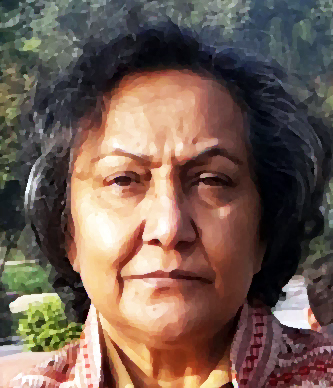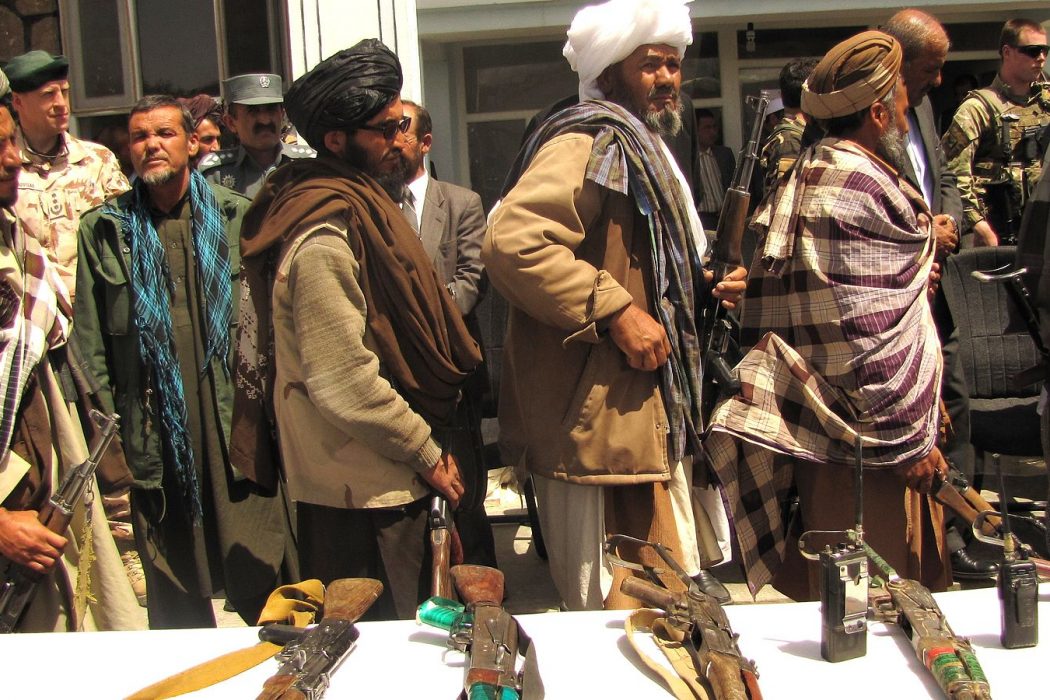Even as the United States sets about pulling its troops out of
Afghanistan in matter of weeks, several towns and districts of the war-
ravaged mountain-locked country have slipped into the clutches of the
Taliban. Faced with this prospect of the radical Islamist group gaining
control, India, which is deeply invested in that country, has felt
compelled to open back channels with it, despite its official stance of not
negotiating with terrorists.
Reports of some of the leading Afghan media outlets such as Tolonews,
Afghanistan Times, and Pajhwok New Agency say that 18 districts have
already fallen into the hands of the Taliban, in recent months, the latest
being Kunduz, located to the north of Kabul. A worried India initiated
talks with some leading members of the Afghan Taliban earlier this year,
even meeting them at an official level, with the help of the Qatar
government – as has been confirmed by Qatari officials.
In fact, India has been speaking with all stakeholders involved in the
peace restoration process. This includes informal interactions with
Taliban leaders such as Mullah Baradar, in a pragmatic departure from
its established refusal to deal with terrorists. The efforts are to avoid a
return to the 1996-era of Islamic Emirate that violently enforced
puritanical Islamic law, stripping women of all rights.
An indication of India’s growing concern can be drawn from the two
stopovers made by Minister of External Affairs, Subrahmanyam
Jaishankar, at Doha, on his way to and from Nairobi last week. He first
held intense meetings with the Qatari leadership, which has played host
to the Taliban since 2013, even allowing them to set up office there, and
which is deeply engaged in the peace talks process with the US.
Subsequently he had an unscheduled meeting with Zalmay Khalilzad,
the US Special Representative for Afghanistan Reconciliation, while at
Doha. They reportedly exchanged “perspectives” on the way forward in
the war-torn nation.
For India, the primary concerns are twofold: One, the spiralling violence
and the ability of terrorist to strike at will in the shrinking space in the
command of the Afghan government led by President Ashraf Ghani,
which evidence that the gains of the past two decades are rapidly
coming undone. Two, the risk of major terror groups such as Al Qaeda
re-establishing base in Afghanistan, which could focus on Jammu and
Kashmir and effectively become a destabilising factor for national and
South Asian security.
While most in the Indian establishment are trepidatious about the
withdrawal of the US and NATO troops, former national security advisor,
Shiv Shankar Menon is of the view that the exit of the US forces will
bring more certainty to future peace talks., forcing the Taliban to the
negotiating table with the Afghan government and representatives of
Afghan society, including women.
All countries in the Afghan periphery and all stakeholders, including
India, the USA and China are united in wanting to keep the Taliban from
wresting control of the government in Kabul. Ghani is scheduled to visit
Washington for talks later this week to see how Kabul and the country
can be secured from a Taliban takeover.
A worried China has already ordered all its citizens to leave Afghanistan.
Having acquired major stakes in some copper mines in the country,
Beijing has also tried to broker peace, involving Pakistan, Russia and
the US in the process, but the exercise has not progressed.
With a $3 billion invested in an Afghan development partnership, which
includes major projects and 550 community development initiative
covering all 34 provinces, aimed at turning Afghanistan into a self-
sustaining nation, India is a major stakeholder in the peace and stability
of the Islamic country. It has been a constant votary of a peace and
reconciliation process that is “Afghan-led, Afghan-owned and Afghan-
controlled.”
To safeguard against being left out of the reckoning in Afghanistan, New
Delhi has deployed the present national security advisor, Ajit Doval’s
network to establish suitable linkages with all communities there,
including the majority Pashtuns, who are concentrated on both sides of
the Durand Line in Afghanistan and Pakistan. Indications are that the
Pashtun Taliban largely have a favourable view of India, for its focus on
development, rather than military involvement and will not push for
removing Indian presence.
On the other hand, Pakistan, which has long established a relationship
with the Taliban, along with Turkey and China, will try to marginalise
India as much as possible. The US has been pressing for greater Indian
role in maintaining security in Afghanistan, which has not been so
forthcoming so far.
Speaking at the United Nations Security Council debate on June 22,
Jaishankar said, “The intra-Afghan talks have not resulted in a reduction
of violence in Afghanistan. On the contrary, violence has only increased,
especially after May 1. The country has been witnessing targeted
attacks on religious and ethnic minorities, girl students, Afghan security
forces, Ulemas, women occupying positions of responsibility, journalists,
civil rights activists and youth.” He sought a complete dismantling of all
terrorist bases.
“A durable peace in Afghanistan requires a genuine ‘double peace’ –
peace within Afghanistan and peace around Afghanistan,” Jaishankar
urged, adding, “It is necessary to ensure that the negotiating parties
eschew the path to find a military solution, and fully commit to reaching a
political solution.”
Ministry of External Affairs spokesperson, Arindam Bagchi underscored,
“India has been pro-development, pro-democracy, pro-human rights,
pro-progress in Afghanistan.” How it continues to remain so will be the
challenge over the next few critical weeks. Faced with this new deadline,
Jaishankar’s meetings in Doha were vital to finalise and flesh out the
strategy India will adopt to best safeguard its interests.















It is certainly a pragmatic view in Indian point of view but due to presence of China with Pakistan in neighbourhood is to be watched carefully as China being cash rich will try to dump money there and worst they can do is bribing Afghan leadership in helm….